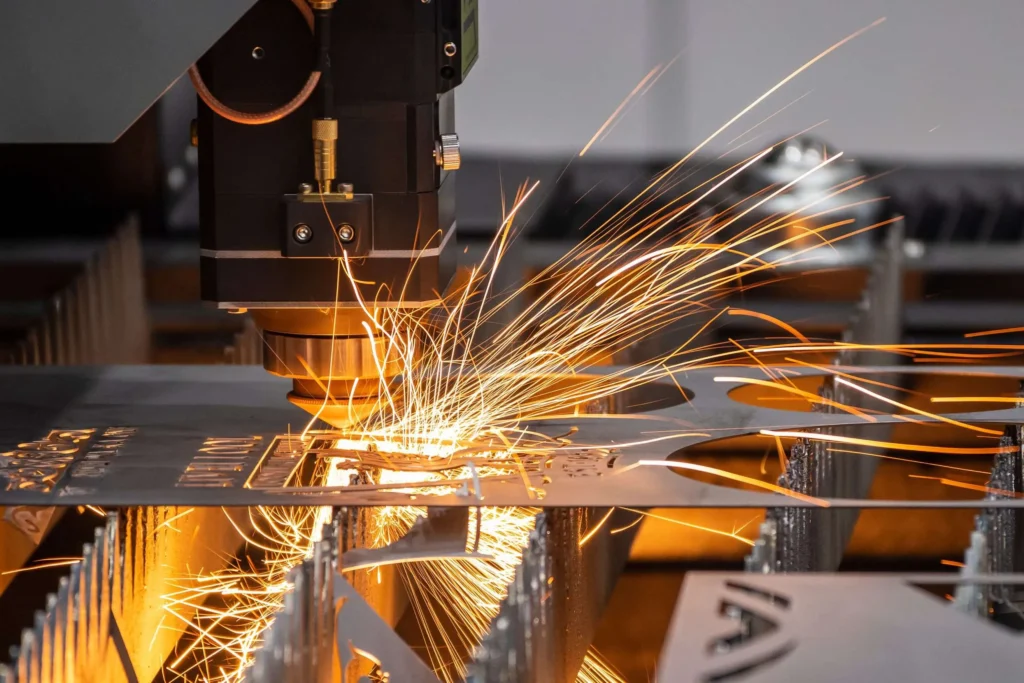Precision machining in Texas represents a cornerstone of the manufacturing sector, offering vital components to industries ranging from aerospace to healthcare. In this article, Shamrock Precision look into the intricate world of precision machining, uncovering industry insights and opportunities that define its significance within the American manufacturing landscape.
Understanding Precision Machining
Precision machining entails the fabrication of complex components with exceptionally tight tolerances, often reaching micron levels. It involves the use of advanced machinery and cutting-edge techniques to craft parts that meet exact specifications. This process is indispensable across various sectors, including automotive, electronics, and defense, where quality and accuracy are paramount.
Precision machining encompasses a wide array of techniques, including turning, milling, drilling, grinding, and electrical discharge machining (EDM). Each method offers unique advantages in terms of precision, surface finish, and material compatibility, allowing manufacturers to produce a diverse range of components with unparalleled accuracy and reliability.
The Role of Precision Machining in Texas
In Texas, precision machining serves as a linchpin of industrial advancement, driving innovation and productivity across diverse sectors. With a rich history of manufacturing excellence, Texas boasts a robust ecosystem of precision machining companies, from small-scale enterprises to multinational corporations.
The aerospace industry relies heavily on precision machined components for aircraft engines, airframes, and avionics systems. From turbine blades to landing gear assemblies, every part must meet stringent quality standards to ensure safe and reliable flight operations.
In the medical sector, precision machining in Texas plays a crucial role in the production of orthopedic implants, surgical instruments, and diagnostic equipment. With advancements in medical technology, the demand for customized implants and minimally invasive surgical tools has surged, driving innovation in precision machining techniques.
The automotive industry relies on precision machined components for engine parts, transmission systems, and chassis components. From high-performance racing engines to fuel-efficient hybrid vehicles, precision machining enables automotive manufacturers to achieve optimal performance, durability, and fuel efficiency.
Industry Insights: Trends and Developments
1. Technological Advancements
In recent years, technological advancements have revolutionized the precision machining landscape. Innovations such as Computer Numerical Control (CNC) machining, additive manufacturing, and Artificial Intelligence (AI) integration have enhanced efficiency, accuracy, and automation in machining processes. These technologies have enabled manufacturers to produce intricate components with greater speed and precision, thereby meeting the demands of modern industries.
2. Shift Towards Sustainability
As environmental concerns continue to escalate, the precision machining industry is witnessing a notable shift towards sustainability. Manufacturers are embracing eco-friendly practices, such as recycling coolant fluids, optimizing energy usage, and adopting green manufacturing processes, to minimize their ecological footprint. This focus on sustainability not only aligns with corporate social responsibility initiatives but also enhances operational efficiency and cost savings in the long run.
3. Integration of Internet of Things (IoT)
The integration of IoT technology is reshaping the operational dynamics of precision machining facilities. IoT-enabled sensors and monitoring systems facilitate real-time data collection, predictive maintenance, and remote equipment management, fostering greater operational transparency and efficiency. By harnessing the power of IoT, manufacturers can optimize production processes, minimize downtime, and enhance overall equipment effectiveness (OEE), thereby gaining a competitive edge in the market.
4. Embrace of Industry 4.0 Principles
With the advent of Industry 4.0, the precision machining sector is undergoing a paradigm shift towards interconnectedness and digitization. Smart factories equipped with IoT devices, robotics, and data analytics tools are redefining manufacturing processes, enabling seamless coordination and optimization across the production chain. This integration of cyber-physical systems not only improves operational efficiency but also facilitates predictive maintenance, demand forecasting, and supply chain optimization, thereby driving business growth and profitability.
Opportunities in Precision Machining In Texas

1. Emerging Markets
The globalization of trade presents lucrative opportunities for precision machining companies to expand into emerging markets. With growing demand for high-quality components in developing economies, strategic partnerships and market diversification can unlock new avenues for growth and profitability. By establishing a strong presence in emerging markets, manufacturers can capitalize on evolving consumer trends, access untapped customer segments, and mitigate risks associated with regional market fluctuations.
2. Customization and Personalization
In an era marked by consumer-driven preferences, the demand for customized products is on the rise. Precision machining in Texas offers the flexibility to tailor components according to specific customer requirements, catering to niche markets and fostering brand loyalty. By leveraging advanced CAD/CAM technologies and flexible manufacturing processes, manufacturers can offer a wide range of customizable solutions, ranging from prototype development to mass production, thereby enhancing customer satisfaction and driving revenue growth.
3. Vertical Integration
Vertical integration, encompassing the integration of design, manufacturing, and distribution processes, can streamline operations and enhance competitiveness in the precision machining sector. By controlling the entire value chain, companies can achieve greater cost efficiency, quality control, and responsiveness to market fluctuations. Through strategic partnerships, acquisitions, or in-house development, manufacturers can optimize resource allocation, minimize lead times, and deliver value-added solutions to customers, thereby strengthening their market position and driving sustainable growth.
Conclusion: Precision Machining in the USA
Precision Machining in the USA presents a myriad of opportunities for growth and innovation. With its commitment to excellence and cutting-edge capabilities, Shamrock Precision stands at the forefront of the industry, offering unparalleled quality and reliability to its clientele. As the manufacturing landscape continues to evolve, embracing the latest technologies and market trends will be essential for companies seeking to thrive in the dynamic world of precision machining in Texas. By staying agile, adaptive, and customer-centric, Shamrock Precision can capitalize on emerging opportunities, expand its market reach, and sustain long-term success in the ever-changing landscape of precision machining in Texas.

